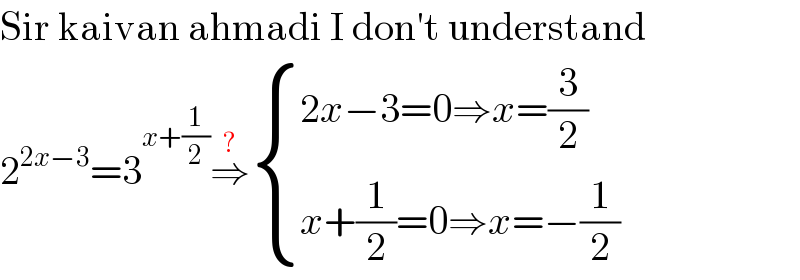
Question and Answers Forum
Question Number 68234 by Mikael last updated on 07/Sep/19

Commented by kaivan.ahmadi last updated on 07/Sep/19

Commented by Mikael last updated on 07/Sep/19

Commented by Prithwish sen last updated on 08/Sep/19

Commented by Rasheed.Sindhi last updated on 09/Sep/19

Commented by kaivan.ahmadi last updated on 13/Sep/19

Answered by Rasheed.Sindhi last updated on 09/Sep/19

